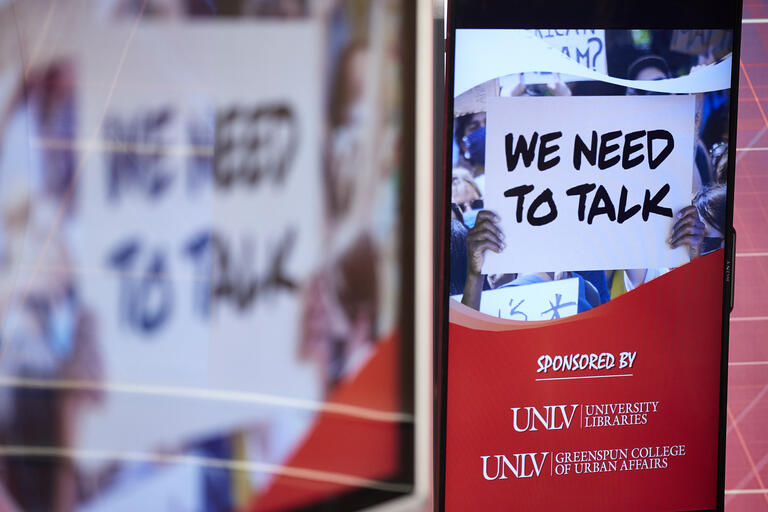Watching the evening news can be a traumatizing experience these days. Mass shootings seem to happen every other night; terrorists attack airports overseas and discotheques in our cities; even our national political discourse has been reduced to insults and invective.
In all of this chaos, the Saltman Center for Conflict Resolution at the UNLV William S. Boyd School of Law offers a beacon of relative calm, and one of the center’s tools is mediation. Simply put, instead of going to war – or court – mediation offers an opportunity for people to engage others in meaningful dialogue, de-escalate conflict … and develop mutually beneficial, interest-based resolutions to litigated and non-litigated issues, problems or disputes.
The Saltman Center offers continuing education credits in mediation skills not only for attorneys, but human resource professionals and business people. The focus is on negotiation instead of confrontation and conflict. Mediation classes are offered in a 40-hour basic level and 21-hour advanced training session.
David Doto, an adjunct professor at the Boyd School of Law, recently conducted basic mediation training at the Saltman Center. Doto, an attorney, says he found mediation when he was seeking an option outside of traditional litigation.
“I started to pursue alternative dispute resolution because I had a growing sense during my litigation career in Philadelphia that there had to be a better path for people in disputes to follow,” he said. “Litigation is harsh. It is very hard on people. Most individuals, even many very sophisticated business people, have no idea how emotionally and physically draining the process can be, let alone the expenses involved.
“There are typically no real winners,” he said. “Even the prevailing party has often suffered greatly and gains limited remedies that do not heal. Moreover, in many cases, the initial trial is only the first step in a long process of subsequent appeals.”
So, mediation is an alternative that works for many, Doto believes.
“Mediation provides a way for people in conflict to come together in a safe environment and resolve disputes in a peaceful manner that is often relatively quick and inexpensive,” he said. “It often allows people to transcend the conflict – even serious matters involving human violence – forgive and set themselves on a path toward healing and even reconciliation.”
Ken Cloke has provided advanced mediation training at the Saltman Center. He said the benefits of mediation aren’t only for those who avoid confrontation. It benefits the mediators, too.
“What it brings me personally is a profound sense of empathy and interconnections with those who are suffering, a set of skills that I use in all my relationships, and a feeling of awe at the incredible transformational power and transcendent potential of conflict, when approached in the right way,” said Cloke, who is a former administrative law judge in California.
The benefit he perceives personally is one that he works to convey in the training.
“The trainings I conduct are oriented both to acquiring typical mediation skills and to understanding the sweep and flow of conflict, finding the places where it dives beneath the surface, and discovering or inventing the skills that are needed to turn it in the direction of collaborative, creative problem solving,” Cloke said.
Doto also sees powerful positives in the training for everyone involved – and for our society generally.
“Mediation empowers people to take control of their lives and connect with those that have hurt them in some way – physically, economically, and psychologically,” Doto said. “That empowerment allows them to stop being a victim, forgive themselves and others, heal, and transform as a result of the process.
“Mediation can transform conflict into a positive force for growth and change. I think that's something we all need. It can change the world one conflict at a time,” he said.
But how, we ask, is the training applied in the world of business, confrontation and conflict, and struggle?
“People apply it in the real world in ways that are unique and personal to each of them,” Cloke said. “It takes a moment, and a lifetime, because it isn’t fixed or solvable in the same way, even from one moment to the next.”



